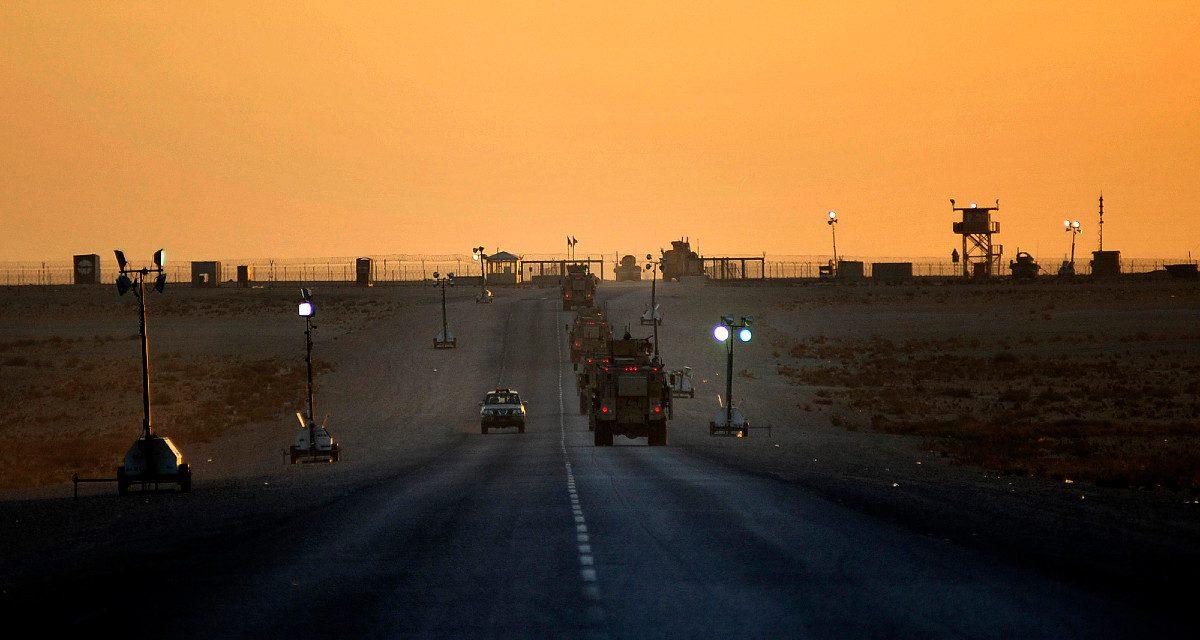Editor’s note: Welcome to another installment of our weekly War Books series! The premise is simple and straightforward. We ask an expert on a particular topic to recommend five books on that topic and tell us what sets each one apart. Curated by series editor Joe McGiffin, War Books is a resource for MWI readers who want to learn more about important subjects related to modern war and are looking for books to add to their reading lists.
With the continuation of the Russo-Ukrainian War and the difficulties with the final resolution of American military involvement in Afghanistan, conflict termination persists as an deeply important topic for leaders and strategists. That’s why we invited Caroline Rose, Tammy Palacios, and Calvin Wilder from the New Lines Institute, a Washington-based think tank, to contribute this edition of War Books. We gave them the following prompt: What five books would you recommend for readers to better understand conflict termination?
The Unraveling: High Hopes and Missed Opportunities in Iraq, by Emma Sky
As the former political advisor to the commanding general of US forces in Iraq, Sky offers the definitive account of the Coalition Provisional Authority’s efforts to establish a new government in Iraq following the 2003 invasion. Her narrative covers the first days of the invasion through the 2011 withdrawal and offers useful lessons for students interested in the pitfalls of conflict termination. She documents, in painstaking and often infuriating detail, the ways in which the United States’ eagerness to get out of Iraq paradoxically prolonged the war, pushing decision makers toward easy solutions that papered over deeper problems.
Conflict Termination and Military Strategy: Coercion, Persuasion, and War, edited by Stephen J. Cimbala and Keith A. Dunn
This book explores the favorable and unfavorable conditions for conflict termination, assessing different great-power perspectives and impetuses for withdrawal. The authors assess the challenging environment in which political and military leadership strategize to terminate conflict—particularly when there is no end in sight—and the gaps that exist between the strategic, operational, and tactical aspects of partial and full military withdrawal.
Zero-Sum Victory: What We’re Getting Wrong About War, by Christopher D. Kolenda
The author explores the question of why so many post-9/11 conflicts have extended into intractable, long-term ungoverned spaces and contested territories. Kolenda identifies a pattern of decision-making that lacks a strategic end state to protracted conflicts. The book examines the blind spots of decision-making in conflict termination, citing a lack of methods to successfully measure long-term progress, quickly respond to battlefield realities to adjust strategies, and conduct a smooth transition as forces withdraw.
The Battle for Syria, by Christopher Phillips
Phillips assesses how the outbreak of civil war in Syria has extended into an intractable geopolitical tug-of-war that has lasted well over a decade. Phillips identifies the multiple layers of interests and security imperatives that have drawn foreign actors into Syria through military intervention, showcasing the difficult political and security circumstances if forces opt to withdraw partially or fully. The book is a useful overview of how the Syrian conflict has compounded over time, exacerbated by states’ lack of long-term strategies for successful conflict termination.
The War in Ukraine’s Donbas: Origins, Contexts, and the Future, by David R. Marples
Marples examines protracted conflict in Ukraine’s Donbas region from 2016 to 2020, exploring the historical, political, and geopolitical imperatives for extended Russian territorial contestation. While the book pre-dates the onset of Russia’s ongoing intervention in Ukraine, it importantly identifies Russian long-term interests to extend influence in the Donbas and the necessary steps for de-escalation and eventual conflict termination.
BONUS — The Challenge for Africa, by Wangari Maathai
The author, a Nobel laureate, does not directly address the topic of preventing terrorism or post-conflict scenarios. This book does, however, do an excellent job of speaking to African accountability—from an African development practitioner—and outlines successful approaches in conceptualizing issue sets. This background and perspective are valuable for affecting change in areas outside your purview: a piece of knowledge which very much represents implementing lessons learned from past military hearts- and-minds-style engagements. Wangari represents a bottom-up yet cross-continental approach to addressing some of Africa’s most pervasive problems.
Caroline Rose is the director of the Project on the Captagon Trade and the Project on Post-Withdrawal Security Landscapes at the New Lines Institute for Strategy and Policy.
Tammy Palacios is a senior analyst and manager of the Priority Sustainable Counterterrorism portfolio at the New Lines Institute for Strategy and Policy.
Calvin Wilder is an analyst in the Nonstate Actors program at the New Lines Institute for Strategy and Policy.
The views expressed are those of the authors and do not reflect the official position of the United States Military Academy, Department of the Army, or Department of Defense.
Image: The last remaining US military forces drive across the border from Iraq into Kuwait, December 18, 2011. (Credit: Master Sgt. Cecilio Ricardo, US Air Force)


It’s great seeing the War Books series coming back.
I can only speak for myself, but it was always one of my favorite series on this site (I’m too old to give podcasts the time and appreciation they deserve). Please try to bring it back to a true weekly.